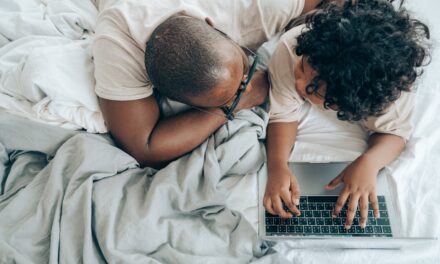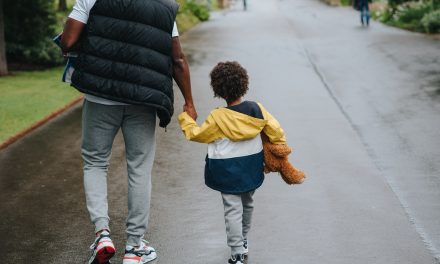Fetishisation is, and I do not use this word lightly, dangerous. Looking back it affected my sense of self worth and perpetuated harmful stereotypes of black people and their sexuality
As an adolescent Nigerian in 90s England, I never saw a problem with ‘throwaway’ comments such as “….that girl is definitely into your BMW…..” or “….I bet you’re a beast on the football pitch….”. As an adult I can now see these backhanded compliments for what they are, blackness as a fetish, exoticisation covered in ‘white gaze’. It may be 2021 but racial fetishisation is still a problem (Racial fetishisation is a person’s exclusive or near-exclusive preference for sexual intimacy with others belonging to a specific racial out-group).
I wonder now as a black parent with mixed race sons how I will prepare my children to deal with this in their lives. Fetishisation is, and I do not use this word lightly, dangerous. Looking back it affected my sense of self worth and perpetuated harmful stereotypes of black people and their sexuality aka hypersexuality. I worry that my mixed race children will be more prone to this than I was. They have the pitfall of having ‘ingroup advantage’ based on their white British heritage. As this article describes “there’s more to it when it comes to a particular taste for mixed-race men. It’s a desire to taste blackness, but in its most palatable form. It’s a fascination with what’s ‘exotic’ but not too unfamiliar. It’s a preference for lighter skin over dark.”As a parent, it doesn’t sit well with me that so much focus is placed on their exterior looks and not their interior beauty, intelligence, and personality.
Black friends and family are guilty of this fetishization, perpetuating racism in the form of colourism, whether it comes from praising mixed race or black children for having lighter eyes, straighter hair or so called white features. It can come from anyone regardless of their racial group. Social conditioning in the UK (and around the world) leads us to believe that the lighter you are, the better off you will be.
So what action can I take as a parent? I believe it has to be guided by three things – Awareness, discussion, and rejection of anti-blackness. While the children are young, paying attention to interactions outside of the home provides opportunities for me to understand how my child is perceived. What our children hear and absorb is important especially when others label their appearance. As a black person, I can attest to how this alone can be exhausting which makes it doubly important to discuss and agree with my partner on how we will give our kids the tools to deal with prejudice in all its forms. It’s crucial to combat anti-blackness not only when it presents obvious negatives but also in those moments hidden as ‘compliments’ that ultimately serve to ‘other’ our children, and enforces and perpetuates lightness as an ideal.
A child’s sense of self can be greatly reinforced through a sense of community; one that believes in their worth and fosters healthy attitudes around identity. An understanding of where they fit into the racial hierarchy based on their phenotype is important in working towards understanding the systems of oppression. Sadly, not enough has changed over the last 30 years, but I have learnt from my lessons and I intend to pass this knowledge on to the next generation.
If you enjoyed reading this you may also like Why Sex Education Is Leaving Black Students Behind and The Importance of Being Earnestly F**ked Up: Why Therapy Helped as a Black Man












